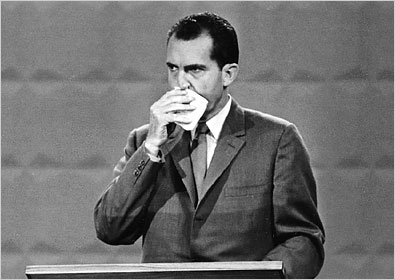Any savvy spokesperson would agree that often in media interviews, silence is golden. But, even the most seasoned spokesperson or media-trained interviewee can trip up when he or she is on the media hot seat.
Two pitfalls that frequently get interviewees into trouble are when they use verbal crutches to preface their comments or responses and when they reflexively try to fill awkward silences during an interview.
It takes discipline to stick to your talking points — even as a crafty reporter creates an uncomfortable silence designed to trick you into yakking beyond your desired response. In those moments it’s easy to not only go off message but it’s especially easy to cross that fine line between sounding credible and seeming as though you invented the word “obfuscate.”
My advice to clients is to say what you need to say and then stop talking. Of course, if it’s TV or radio, editors are just going to clip out the dead air anyway; and, there’s no such thing as dead air in a print or web story.
Don’t let the reporter’s silence make you think, “Gee maybe I didn’t give a good enough answer the first time, so I better rephrase it.” And, if the reporter rephrases the question and asks it again, go right ahead and answer it the same way.
In fact, before your repeat your answer to the reporter, I suggest prefacing it by saying, “As I just stated…” Nothing sends a stronger message to a reporter that you’re not going to play by their rules and be duped into giving a more expansive or revealing response.
In a recent Ragan’s PR Report, blogger Michael Sebastian described four verbal crutches that to reporters can suggest a lack of credibility rather than true transparency:
1. “Let’s be clear”
2. “To be perfectly honest”
3. “Frankly”
4. “Just between you and me”
Sullivan writes that surveys of journalists have shown that these throat-clearing statements can hurt a spokesperson’s credibility. Rather than relying on filler, it’s better to pause before answering the question, consider your response, and then get directly to the summary statement.
After all, we know Richard Nixon’s penchant for saying, “Let me be perfectly clear,” didn’t do much for his credibility.

